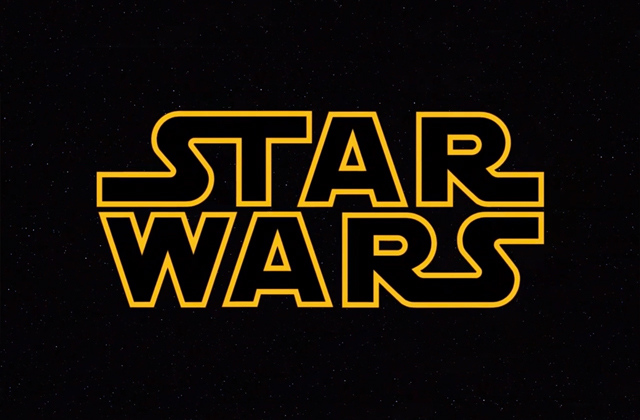
The best (and maybe worst) thing Star Wars: Episode VII has going for it is potential. Now officially dated for December 18th, 2015, the J.J. Abrams-led addendum to the beleaguered Star Wars franchise arrives a decade after Darth Vader deadpanned “NOOO!” and the world crossed its legs in collective embarrassment. Not just any franchise could survive that — but Star Wars is strong. A long time ago, seemingly in a galaxy far, far away, George Lucas had a great idea. The scrappy masterpiece he unleashed in 1977 exploded off the screen and into our imaginations. Like weak-willed stormtroopers, we’re still under the spell of the force.
Even against our better judgement. Five movies and 36 years later, Abrams is saddled not with the role of director, but of necromancer. Financially, Star Wars may be as virile as ever — with enough books, discs, and merch to fill a sarlacc pit — but creatively, it’s dead and ripe. Last March, Disney spent a fortune on the corpse and is playing Dr. Frankenstein to the tune of 4.05 billion, but what’s so tantalizing about that news is not that more Star Wars is coming, but that it might not suck.
Which would be more surprising at this point; the stinging lash of another disappointment, or a truly worthy sequel to Return of the Jedi? Disney will make its money either way, but for the long-term health of their investment, it’s critical they get Episode VII right. The stakes are high, and the departure of screenwriter Michael Arndt in October, coupled with CEO Robert Iger’s reported refusal to grant the filmmakers an extension beyond December into 2016 has fans understandably discouraged.
Why? Because in a post-Phantom Menace world, we’re forced to reevaluate our naive optimism as fans. May 19, 1999. A day that shall live in infamy. Star Wars came under attack, not from without but within. In 136 minutes, George Lucas did to the franchise what the Empire did to Uncle Owen’s moisture farm, and things will never be the same. Sloppily written and clinically directed, Episode I was shockingly bad, representing probably the greatest disappointment in movie history. Its sequel, Attack of the Clones? Arguably even worse.
Opinions on Episode III vacillate, but after spending four and a half hours in the fetid toilet of Lucas’ toil, I reckon anything smells good. Years past; each inevitable home video re-release serving as a solemn reminder not just of the pallidness of the prequels, but of the ever-increasing oddball edits grafted onto the once-majestic original trilogy. Salt, meet wound.
So what can Abrams glean from the franchise’s failures? It’s a testament to Star Wars that we’re still invested in the universe, even when the odds of recapturing its youthful je ne sais quoi are, well… never tell me the odds. Obviously, a good story is vital. Now collaborating with series veteran Lawrence Kasdan on a screenplay, Abrams has a chance to restore our faith in the force, though the question becomes whether he’s a Jedi master with the power to levitate a submerged X-wing, or a padawan at whose hands it will slip deeper into the bog.
Then there’s the cast. It’s expected that Harrison Ford, Mark Hamill, and Carrie Fisher will reprise their iconic roles as Han, Luke, and Leia, but do we really even want them to? I could see Hamill as a grizzled old Jedi, but the charisma that always overshadowed Ford’s acting ability has long since been snuffed from his old eyes. Unless the writers can seamlessly integrate these characters into the new narrative — and unless the cast can still make Star Wars convincing — the cameos will only widen the perceived gulf between the original trilogy and everything else.
Still, credit where credit’s due: Abrams is smart. Rebooting Star Trek in 2009, he honored a legacy without becoming indebted to it. Leonard Nimoy’s appearance as Spock Prime carries real narrative weight unlike, say, the rote gag of inserting a certain comic book luminary into anything carrying the name “Marvel” — another Disney-owned property. Abrams and his casting department deserve a lot of credit, and there’s reason to be optimistic that Star Wars will tap compelling young talent. On the other hand, as Ewan McGregor and Natalie Portman might attest, talent only goes so far.
Story, character, and casting need to harmonize, and soon — the biggest threat to Episode VII is the clock. In two years, we’ll be able to discuss concretely whether Star Wars is finally good again. In the meantime, the possibility that Abrams will fumble is preferable to the near certainty George Lucas would, or the absence of an attempt. The series was tarnished back in the 20th century, and by the time Episode VII premieres, Star Wars will have spent ten long years frozen in carbonite. A few stumbles will be expected after the thaw, but the real measure of its merit will be how gracefully it recovers from those first disorienting rays of sunlight.